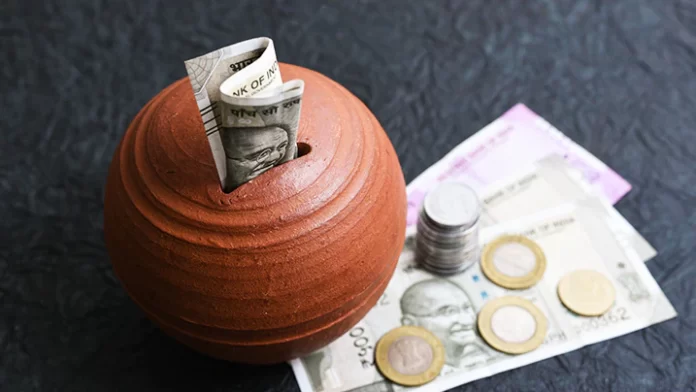In India, savings accounts provide a quick and secure way to store money. However, your savings account may be impacted by several variables, such as interest rates, fees, minimum balance requirements, withdrawal restrictions, inflation etc. Let’s first grasp what a 0 balance savings account is and how it might help you before we look at these elements in more detail and examine how they could affect your account.
Factors Affecting Saving Account
Interest Rates
Interest rates are one of the most critical factors that can affect your savings account. Higher interest rates can help your savings account grow faster, while lower interest rates can slow down your savings growth.
It is essential to remember that interest rates can alter over time and differ from bank to bank. For instance, if the Reserve Bank of India (RBI) lowers the repo rate, savings account interest rates may also decrease.
In order to get the best rate for your savings account, it is crucial to monitor interest rate fluctuations and compare rates provided by other financial institutions.
Fees
Fees are another factor that can affect your savings account. Banks may charge various fees for maintaining your account, such as monthly maintenance and transaction fees. Such charges can eat into your savings and reduce your balance.
It is essential to read your savings account’s terms and conditions carefully to understand its associated fees, even if it was a free bank account opening. You can also compare different banks’ prices to find a savings account with low or no fees.
Minimum Balance
Minimum balance is the minimum amount of money that you need to keep in your savings account to avoid any fee or earn interest. Banks may set different minimum balance requirements for different types of savings accounts.
You must maintain the minimum balance required by your savings account to avoid being charged a penalty fee or losing interest. Therefore, choosing a savings account with a minimum balance requirement that you can comfortably maintain is essential.
If you want to avoid maintaining a minimum balance, you can opt for a 0 balance savings account. However, you would have to maintain a minimum monthly average balance.
Withdrawal Limits
Withdrawal limit is the maximum amount of money you can withdraw from your savings account daily. Financial institutions may set different withdrawal limits for different types of savings accounts.
If you exceed the withdrawal limit of your savings account, you may be charged a fee or lose out on interest. Therefore, choosing a savings account with a withdrawal limit that meets your needs is important.
Inflation
Inflation is the rate at which the general prices for goods and services rise. It can affect your savings account in several ways. If the interest rate on your savings account is lower than the inflation rate, your savings will lose value over time. It is because the cost of goods and services will rise faster than the interest you earn. Thus, selecting a savings account with an interest rate higher than the inflation rate is crucial.
Why Is Having a Saving Account Necessary?
Here’s why having a savings account is necessary:
- Savings account allows you to earn interest on your balance. It allows your money to compound over time. Thus, it can help you save money for immediate or long-term financial objectives.
Also Read: A Complete Guide About the Difference Between Net Banking and Mobile Banking
- Savings account provides you easy access to cash whenever you need it, whether through an ATM or by going to a branch.
- Savings account might assist you in creating a budget and planning your spending. You can ensure you have money put aside for emergencies by keeping your savings and expenditures separate.
- Some savings accounts offer automatic savings features, such as setting up regular deposits or transferring money from your checking account to your savings account. It can help you save money without having to think about it.
Conclusion
Several variables, such as interest rates, fees, minimum balance requirements, withdrawal restrictions, and inflation, may impact your savings account. Thus, select a savings account that satisfies your financial needs.
Also Read: The Future of Zero Balance Accounts: Potential Trends, Challenges, and Opportunities
By being aware of these factors, you can make informed decisions about your 0 balance savings account and ensure that your money works for you.







